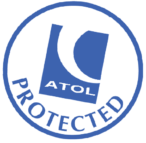Capital: Windhoek
Time zone: GMT + 2
Telephone services: Country Code: 264
Outgoing Code: 09
Emergency telephone numbers: Police – 1011, Ambulance – 2032276, Fire – 2032270
Tourist information: Namibia Tourism, Private Bag 13346, Windhoek, Namibia Tel: (61) 284 0111 Fax: (61) 221 930
Passport information: Valid passport required by all, must be valid for 6 months after the date of leaving Namibia. Return Ticket Required. Requirement may change at short notice. Contact the embassy before departure.
Visa information: Visa Not required by nationals of EU countries (except Greece which do require visas) for stays of up to 3 months. Nationals of Angola Australia Botswana Brazil Canada CIS Cuba Iceland Japan Kenya Lesotho Liechtenstein Mozambique New Zealand Norway Singapore South Africa Swaziland Switzerland Tanzania USA Zambia Zimbabwe for up to 3 months.
Health information: Polio, Typhoid: Vaccination recommended.
Malaria: Malaria exists within certain areas during periods of the year in the Falciparum variety
Yellow Fever: A vaccination certificate is required by those arriving from infected areas excluding those under 1 year of age. If arriving by scheduled flights and are in transit a certificate will not be required if passengers do not leave the airport.
Other Health Risks: Bilharzia, Cholera, Rabies. There is a very high prevalence of AIDS/HIV. Visitors should seek medical advice before travelling.
Food & drink: Water is untreated and not safe to drink.
Currency: Namibian Dollar (N$) = 100 cents South African Rand (r) is also still in use. CC: Widely accepted. NOTE: All currency must be declared at the point of entry. Import and export of local currency is limited to N$500.
Credit cards are widely accepted. Travellers cheques in German DM currency are widely accepted
ATM availability: 34 locations
Cost of living: Moderately expensive in urban areas but reasonably inexpensive in rural locations
Languages: English, Afrikaans, German and African languages are spoken.
Weather: The coast is cool and rain free most of the year. Inland rain falls between Oct – Apr. Summer temperatures are high.
Electricity: 220/240 Volts AC, Plugs are of the 3 pin type
Post: 4 days to 2 weeks. Good airmail service available
Transport: ROADS: Are well maintained. FLIGHTS: Are often the most economic way to travel. The national airline links all the major cities. RAIL: Trains operate between the main cities and offer first class and sleeping facilities. DOCUMENTATION: IDP is required.
Special information: Western customs prevail. EXTREME RISK: in Caprivi and Kavango. Do not travel to Caprivi because of a state of emergency and do not enter the Sperrgebeit (prohibited diamond area). Also avoid the Angola border where there has been military action. Take advice locally on which areas to avoid. Do not enter the townships at night.

